Christine Milne’s life for nature: Connecting with nature through everyday life on the farm
Mum and dad had a small family dairy farm, so we rarely left home because the cows had to be milked morning and night, so hardly any holidays. But the farm went down to Bass Strait, so down to a coastal lagoon and then out onto the beach. And when you looked inland, you could see Mount Roland, you could see Cradle Mountain, and when you looked along one way towards Penguin, you could see the Dial Range and then down at the beach the other way you could see almost as far as the Tamar.
So I was brought up in what I call a sort of crucible of my life really. Having looked at my family history intergenerationally, our family has been in that area, lived, died, buried, worked in that whole region over five generations. So I feel like I am part of that country and that's where I came from.

And so dad would be saying things like “the snow's on Cradle [Mountain] and it's going to be a cold day today” or “no we can't go fishing because the weather is easterly there's too much of an easterly wind coming through”. We'd sit there in the evening on the veranda and just look at the shadows falling over the paddocks and talk about what was going on with the dogs or the rabbits, whatever is going on on the farm.
I felt like I was part of the seasons.
We knew when the mushrooms would come where we would have to go to get them. We knew when the migratory birds would be coming back. Down at the beach, we had fairy penguins, so we watched those and listened to those coming and going.
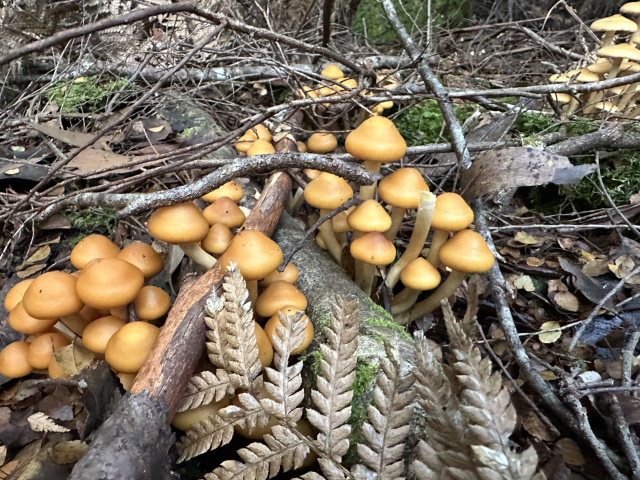
Before Easter, one year as a small child, we had an enormous electrical storm and lightning hit the garage and it collapsed. So this was a very exciting thing as a child.
Another thing that happened, there was a beaching of a hundred or more pilot whales along the beach at Moorlands and that was a very exciting thing as a child, and I was horrified. I remember being absolutely horrified because people would come from town and start carving their names into these whales and I just thought people just see them as an object, not as a live creature that's dying here on this beach.
So this intense electrical storm and then that beaching of the whales, there's sort of two outstanding things that I remember from being brought up on the farm.
But it was more just the rhythm of life. It wasn't any one particular thing.
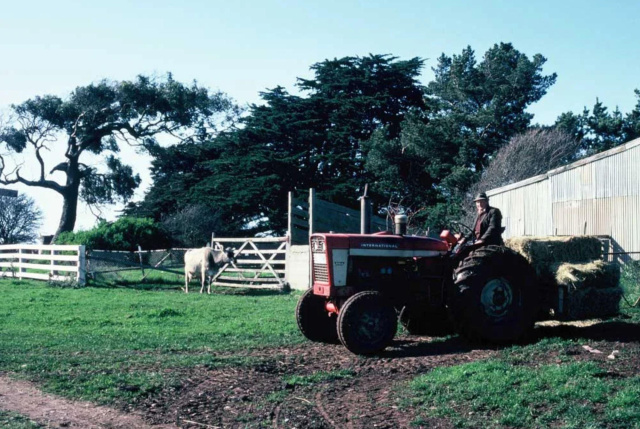
I remember dad coming in one day saying that a white cockatoo had appeared at the farm, and there were never any white cockatoos in our part of the world at that time. Any time that anything happened that was different or interesting, the kids were always brought out to be shown this particular animal or bird that had just arrived on the scene, but it was really part of just the evolution of that environment.
You know, we'd get sent outside early in the morning and told not to come back until lunchtime and wander off at our own resources, which is one of the reasons why I have so many issues with skin later in life because we ran around without any hats or sunscreen or whatever, as many young people in Tasmania did in the 50s and 60s.
So that is where I learnt about nature, the seasons, the rhythm of life and fitting in very much with the rhythm of life.
I think it was intensified for me because I was sent to boarding school when I was 10. So I was taken from that environment and from the Wesley Vale area school which was a little country school, and sent to Hobart to St Mary’s collage which was a catholic girls boarding school.
St Mary’s is right in the heart of Hobart. It couldn't be more sandstone, more streetscape than if you tried. Hardly any gardens, and the garden was anyway prohibited as far as the students were concerned. It certainly wasn't to be played in. So as a result, I felt completely disconnected from the life I'd known and the environment I had known, and it makes you intensely aware of that environment.
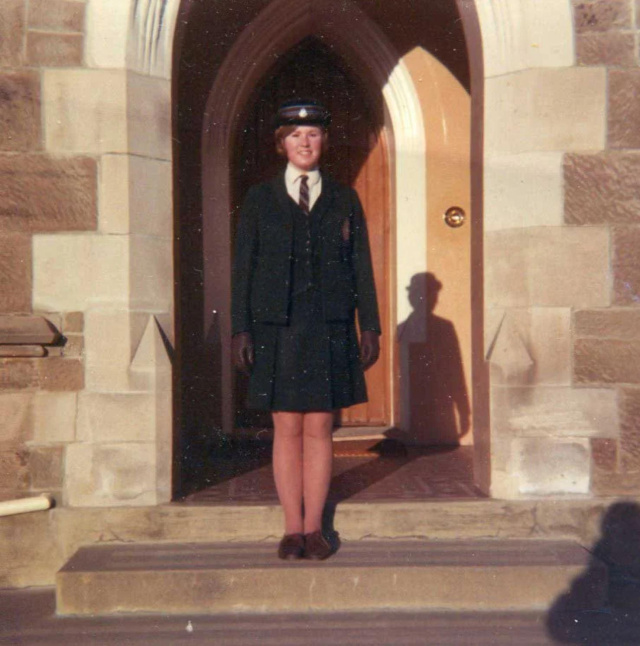
You had in your mind's eye where you came from and what you would be missing so that when you went back to boarding school, you remembered it. So I feel like that disconnection at age 10 intensified my love of that particular landscape and environment, which of course led later to my involvement with the Wesley Vale campaign.
But that really was the point at which I became aware of how committed I was to maintaining that kind of environment, but also that kind of life.
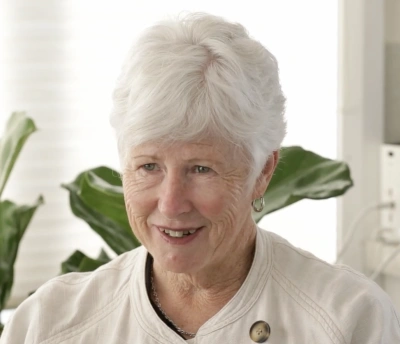
Christine Milne
Global nature conservation leader. Officer of the OAM
Mum and dad had a small family dairy farm, so we rarely left home because the cows had to be milked morning and night, so hardly any holidays. But the farm went down to Bass Strait, so down to a coastal lagoon and then out onto the beach. And when you looked inland, you could see Mount Roland, you could see Cradle Mountain, and when you looked along one way towards Penguin, you could see the Dial Range and then down at the beach the other way you could see almost as far as the Tamar.
So I was brought up in what I call a sort of crucible of my life really. Having looked at my family history intergenerationally, our family has been in that area, lived, died, buried, worked in that whole region over five generations. So I feel like I am part of that country and that's where I came from.

And so dad would be saying things like “the snow's on Cradle [Mountain] and it's going to be a cold day today” or “no we can't go fishing because the weather is easterly there's too much of an easterly wind coming through”. We'd sit there in the evening on the veranda and just look at the shadows falling over the paddocks and talk about what was going on with the dogs or the rabbits, whatever is going on on the farm.
I felt like I was part of the seasons.
We knew when the mushrooms would come where we would have to go to get them. We knew when the migratory birds would be coming back. Down at the beach, we had fairy penguins, so we watched those and listened to those coming and going.

Before Easter, one year as a small child, we had an enormous electrical storm and lightning hit the garage and it collapsed. So this was a very exciting thing as a child.
Another thing that happened, there was a beaching of a hundred or more pilot whales along the beach at Moorlands and that was a very exciting thing as a child, and I was horrified. I remember being absolutely horrified because people would come from town and start carving their names into these whales and I just thought people just see them as an object, not as a live creature that's dying here on this beach.
So this intense electrical storm and then that beaching of the whales, there's sort of two outstanding things that I remember from being brought up on the farm.
But it was more just the rhythm of life. It wasn't any one particular thing.

I remember dad coming in one day saying that a white cockatoo had appeared at the farm, and there were never any white cockatoos in our part of the world at that time. Any time that anything happened that was different or interesting, the kids were always brought out to be shown this particular animal or bird that had just arrived on the scene, but it was really part of just the evolution of that environment.
You know, we'd get sent outside early in the morning and told not to come back until lunchtime and wander off at our own resources, which is one of the reasons why I have so many issues with skin later in life because we ran around without any hats or sunscreen or whatever, as many young people in Tasmania did in the 50s and 60s.
So that is where I learnt about nature, the seasons, the rhythm of life and fitting in very much with the rhythm of life.
I think it was intensified for me because I was sent to boarding school when I was 10. So I was taken from that environment and from the Wesley Vale area school which was a little country school, and sent to Hobart to St Mary’s collage which was a catholic girls boarding school.
St Mary’s is right in the heart of Hobart. It couldn't be more sandstone, more streetscape than if you tried. Hardly any gardens, and the garden was anyway prohibited as far as the students were concerned. It certainly wasn't to be played in. So as a result, I felt completely disconnected from the life I'd known and the environment I had known, and it makes you intensely aware of that environment.

You had in your mind's eye where you came from and what you would be missing so that when you went back to boarding school, you remembered it. So I feel like that disconnection at age 10 intensified my love of that particular landscape and environment, which of course led later to my involvement with the Wesley Vale campaign.
But that really was the point at which I became aware of how committed I was to maintaining that kind of environment, but also that kind of life.
You might like...
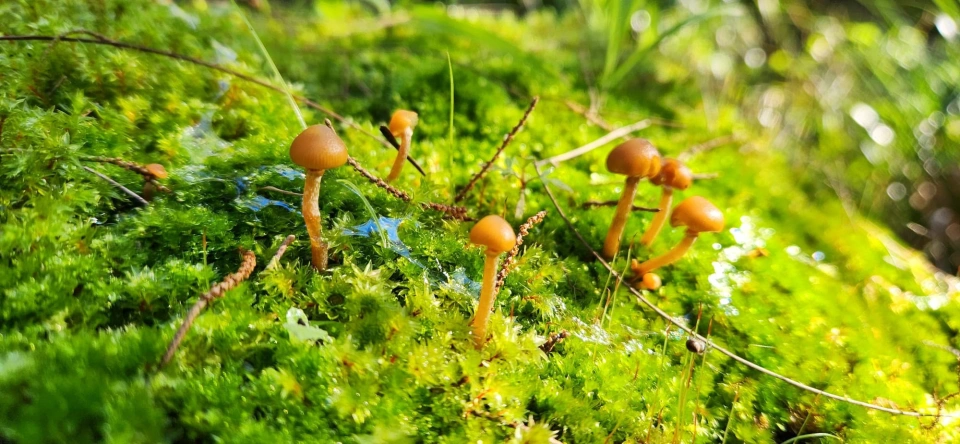
The 5 benefits of volunteering in conservation
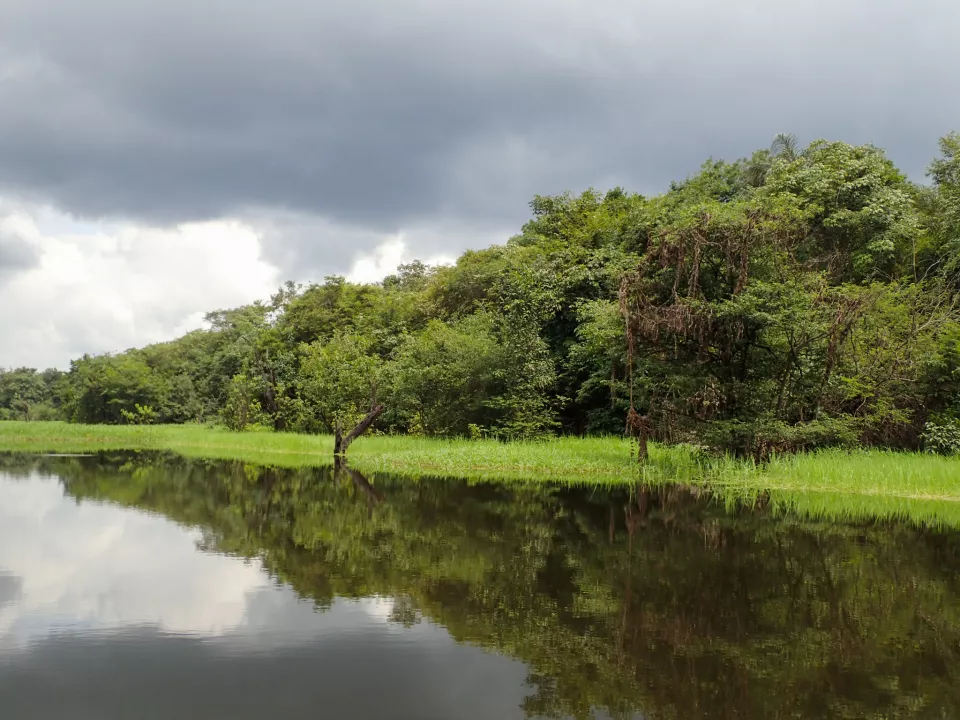
Alec Marr’s life for nature: how it all began
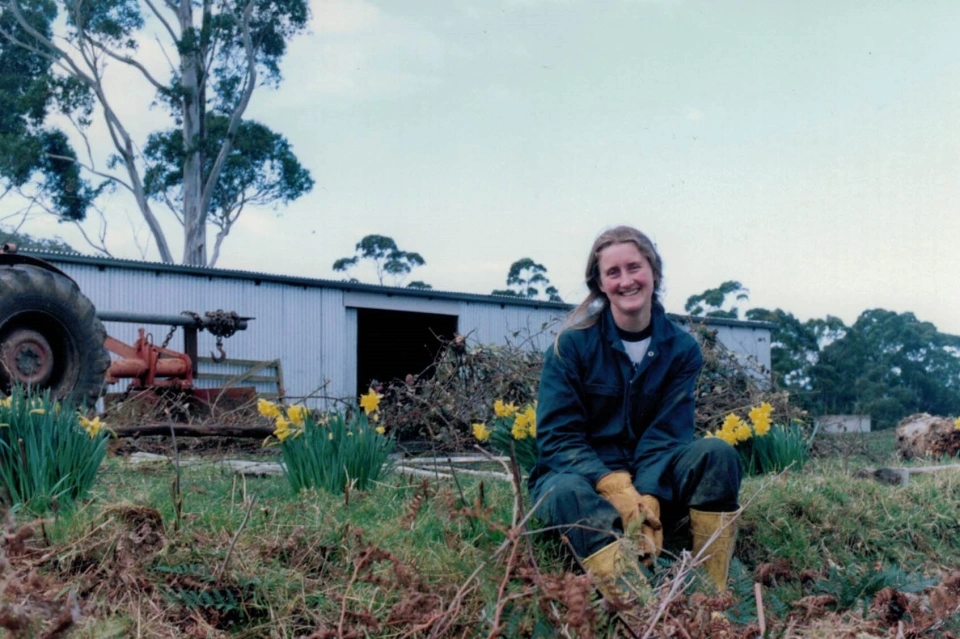
Nature’s in my blood
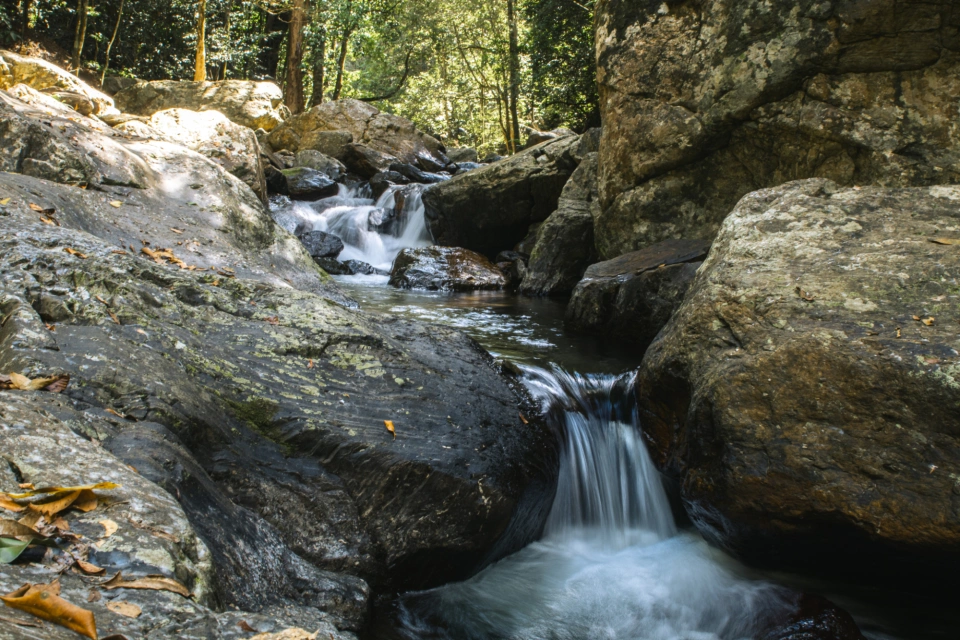
Up the creek
Newsletter
Sign up to keep in touch with articles, updates, events or news from Kuno, your platform for nature

